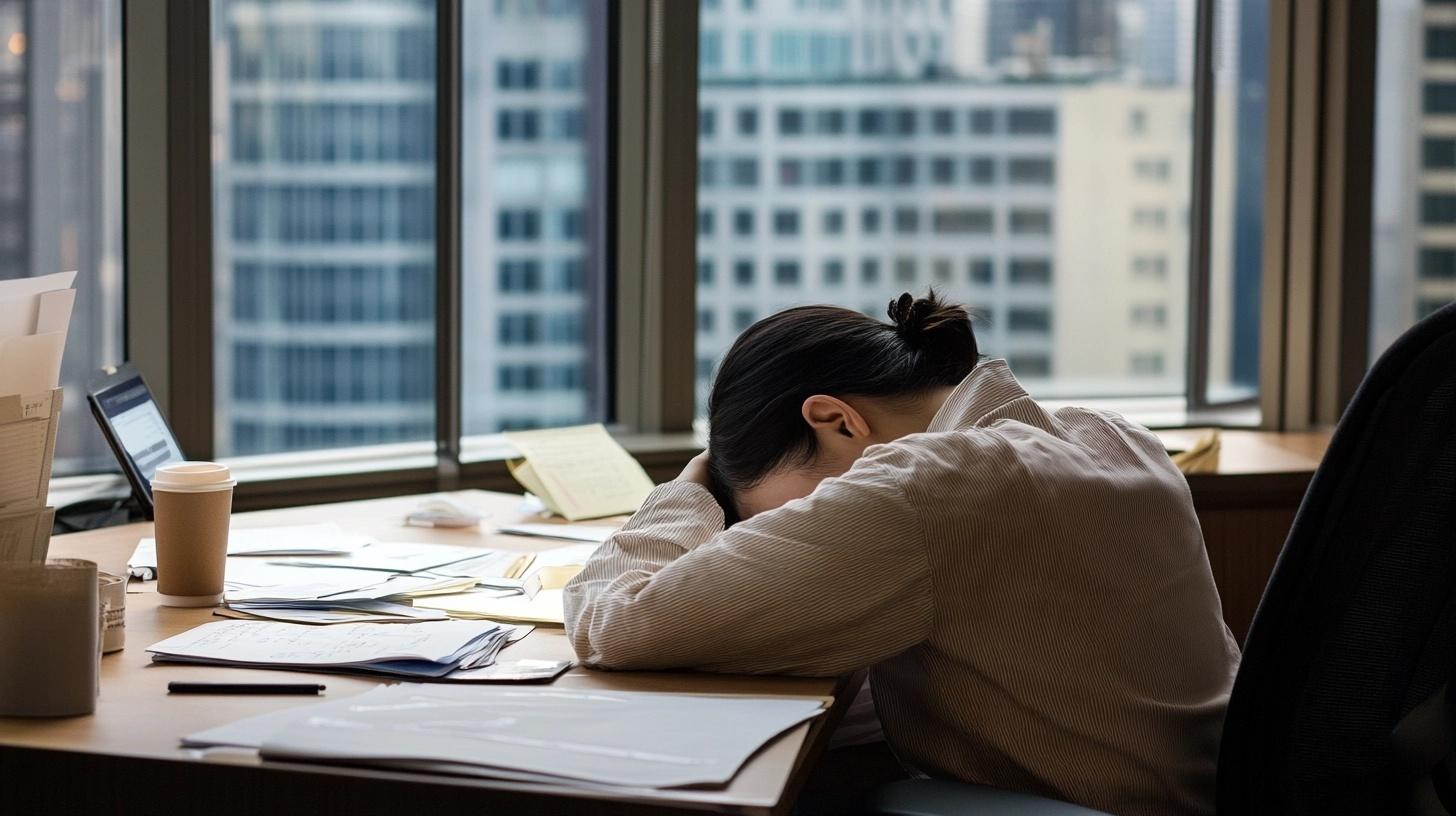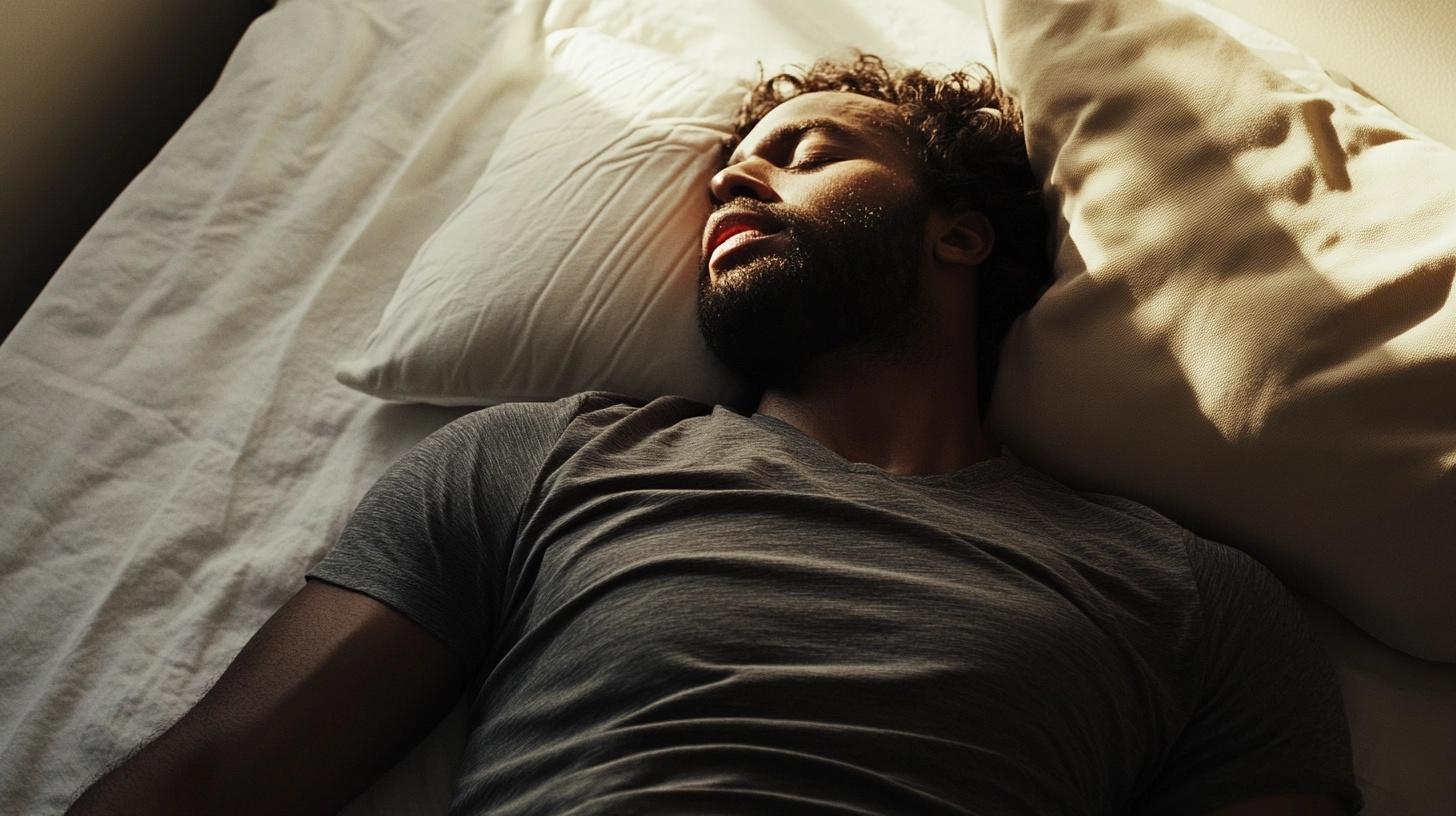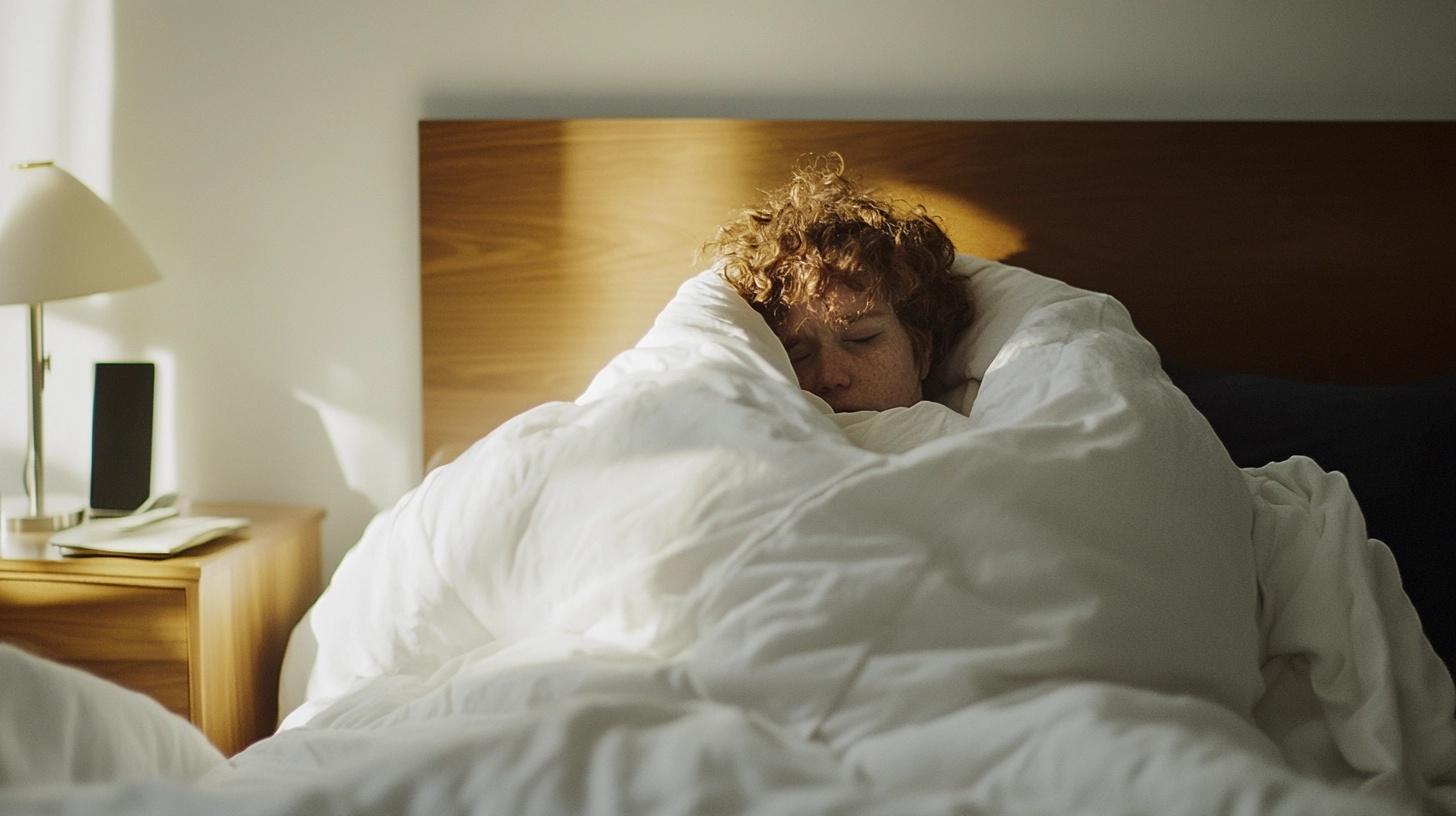How to manage (pre-) holiday stress at work and save your sleep

For many of us, the workload becomes intense during the time leading up to the holidays. And holiday preparations, financial worries and social obligations only add to the stress. In fact, an astonishing 56% of Americans wish the holiday season was canceled because of increased stress! Starting your vacation with high-stress levels can impact your ability to relax, enjoy and recover during the holidays. Paying attention to healthy habits, especially sleep habits, is therefore extra important!
We’ve teamed up with our Sleep Expert, Li Åslund, licensed psychologist and Ph.D., to find ways to reduce stress, organize your work and holiday to-dos and keep healthy (sleep) habits ‘tis season (with the help of the Sleep Cycle app) so you can enter the holidays in jolly rather than jaded spirits.
- 5 ways to cope with (pre-) holiday stress at work
- What can you do at home against pre-vacation stress?
- Working during the whole holiday season? Here you have 5 tips
Ways to cope with holiday stress at work
Work anxiety and stress are already leading causes of sleep difficulties. It is therefore important to prioritize managing holiday stress at work since performance and productivity are likely to be affected by the increased pressure employees are feeling both at work and at home.
Li suggests 5 tips to avoid holiday stress that are easy to implement at the office and can make a positive difference for sleep, performance and spirits.
1. Take breaks
Slowing down seems counterintuitive to many of us when the to-do list is long and the looming year-end deadline is approaching. “Encouraging staff and colleagues to take short, restful breaks during the day (incorporating breathing exercises, yoga or meditation) will lower arousal and teach the body to wind down”, Li says. She also stresses the importance of prioritizing sleep because “it’s the ultimate coping remedy” that gives you the energy to practice other important self-care steps to fend off holiday stressors as well as lowering your cortisol levels (stress levels) for better sleep and lower anxiety. You might get fired in some workplaces for sleeping on the job, but if your workplace allows, practice how to power nap for a quick but effective boost.
2. Get moving
Promoting physical activity at work helps the body keep the circadian rhythm at a steady pace. “For still-sitting jobs, Walk & Talks are great. So are yoga stretches and walking lunches”, Li suggests. But perhaps your job already keeps you on your feet. “For more physically demanding jobs, I recommend adding simple stretches or breathing exercises to your break to give the body and mind an active rest. Just a few minutes here and there can work wonders,” she adds.
3. Prioritize your workload
Taking a closer look at work planning and priorities can help reduce excess stress. “What is genuinely urgent and what can wait until after the break?”, she says and continues, “This is also the time for managers and team members to motivate teamwork and share the workload to avoid some employees taking on too much extra work while others take time off.”
4. Stay home when sick
You may recognize the phrase, “I don’t have time to be sick”. But taking the time to heal is actually vital for a speedy recovery – and necessary to avoid spreading illness at work. This doesn’t mean clocking in all your work hours from your bed. Feeling the stress of work is one way to raise your cortisol levels which will impact your ability to sleep and your ability to recover. Find a balance that allows for proper rest without feeling too stressed about unfinished projects.
5. Explore flexibility at work
1 in 6 American parents feel increasingly stressed during the holiday season, according to a 2021 survey done by C.S. Mutt Children’s Hospital. If your job allows it, ask for some flexibility in your work schedule leading up to the holidays. This allows you to focus on your work AND to check tasks off your lists, attend holiday events at your children’s schools or other family obligations that typically arise during the holidays and add a pressure that reduces productivity at work. ‘Not in a million years will my work allow that’ you might say. But employers are increasingly understanding the importance of work-life balance for employee retention and might surprise you.
What can you do at home against pre-vacation stress?
Most holiday-related stressors are actually self-imposed and preventable. Being mindful of what really matters to you and your family is key. Li suggests:
1. Set realistic goals
Says Li, “Ask yourself this, what is actually vital for a successful holiday season in my home?” Certain foods? Certain traditions, gifts, Holiday cards, pictures with Santa, a clean house, home baked cookies, decorations, gatherings, school events, work projects, etc.? Parents and especially women tend to take on more holiday responsibilities. “Decide what is important to you, what can be outsourced to other family members, saved on or completely ignored – no matter what your in-laws might think”, she suggests. This also means creating a budget for the season – at the beginning of the year – if money is a stress factor. Once your priorities are clear to you, add them to your holiday to-do list that you share with your partner or anyone else who can contribute.
2. Sleep!
We’ve said it before and will say it again. Sleep! Sleep deprivation messes with work performance and your ability to cope with extra stress. People tend to think that they sleep better during the holidays because they don’t have to wake up at a set time. But more than 50% of people who normally sleep 7-8 hours per night are getting 5-6 hours or less per night during the festive season. And overindulgence on food and alcohol along with the raised cortisol levels from holiday stress affect the quality of sleep not to mention your risk of developing type 2 diabetes.
“We’ve seen from our own data how keeping up a good sleep routine improves your quality of sleep” Li points out. When comparing the month of December 2021 to the rest of the year in the 11 countries that celebrate Christmas (and where the Sleep Cycle app is used), sleep duration and sleep quality remained the same throughout the year for Sleep Cycle app users. “This suggests that when you prioritize sleep and good sleep habits, your sleep will not suffer during stressful times”, Li says and emphasizes that sleep quality is better than sleep quantity. “If you feel rested and happy after 7 hours of sleep, you probably don’t need more than that”.
So what can you do to maintain good sleep habits?
- Wake up and go to bed at the same time every day.
- Sleep in a dark room that is quiet and cool.
- If traveling, stay in a friend’s house instead of a hotel if you can where you might be more comfortable. Use earplugs or white noise if needed.
- Finish eating and drinking 2-3 hours before bed.
- Exercise daily and pay attention to your circadian rhythm. We suggest family walks during daylight.
- Watch the sugar and alcohol. We know the extra plate or another egg nog are much favored coping mechanisms when the ‘fandamily’ is gathered, but both are linked to nighttime awakening, poorer sleep quality, and lower sleep efficiency.
3. Prioritize selfcare
Setting aside time to take care of yourself (yes, put it in your calendar!) will help you have the energy for work, family, gift shopping, and all the other holiday stressors. And remember, a little goes a long way. What brings you joy and fills you up with energy?
Some favorites self-care tips from our sleep expert include:
- Spending time alone (parents, especially, seem to benefit from this one).
- Curl up under a blanket with a book or a cup of tea.
- Listen to music.
- Exercise (walking is enough) and spend time in nature (outside at least).
- Tend to religion.
- Mindfulness practices such as stretching, yoga or meditation – or simply doing nothing.
- Surround yourself with people you love and support you. Human connectedness is especially beneficial for people in high stress occupations.
- Let go of guilt and perfection. Focus on the positive and don’t guilt yourself if things didn’t go as planned.
What if you work during the holiday season?
On average, Americans plan to take 6 days off work this holiday season, according to a 2022 survey done by FinanceBuzz. But how do you avoid holiday overload if you have to work through the holidays? Or if you’re part of the 33 % of the workers asked who still plan to check in with work while on vacation? Planning ahead is key.
- The holidays come every year, so plan ahead for it. Perhaps you have vacation days saved up so you can plan for time off before the holidays. Dedicating one day a week or every 2 weeks to holiday preparations or events can help curb the holiday stress.
- Establish expectations for the holidays with your family, so you don’t feel you’re letting anyone down.
- Establish rules for working hours with your boss and your family if working from home. Work when you work, and stop looking at your phone when you’re not.
- Ask for help from family, friends or neighbors to help with the kids or the holiday cooking.
- Keep up your daily routine as much as you can. Consistency works wonders for our ability to sleep and cope with anything extra.
How to manage holiday stress: plan ahead (and don’t forget about your sleep)
Whether you’re jamming through the holidays at work or at home in your PJs, holiday stress can easily catch up to all of us if we’re not prepared. By planning ahead, prioritizing and organizing your to-dos, including your sleep schedule, the holiday season is bound to be a joyful and restful one.
The best holiday gift you can give to yourself this season is to keep track of your (pre) holiday sleep and get help maintaining a healthy sleep schedule with the Sleep Cycle app:







